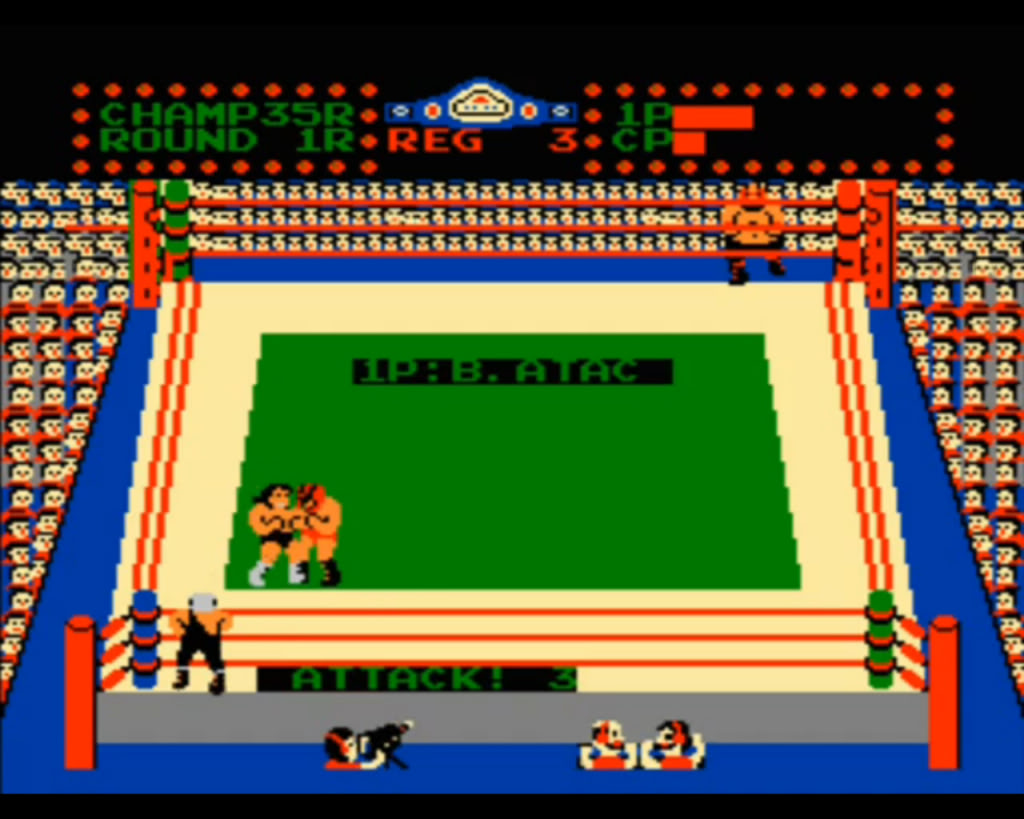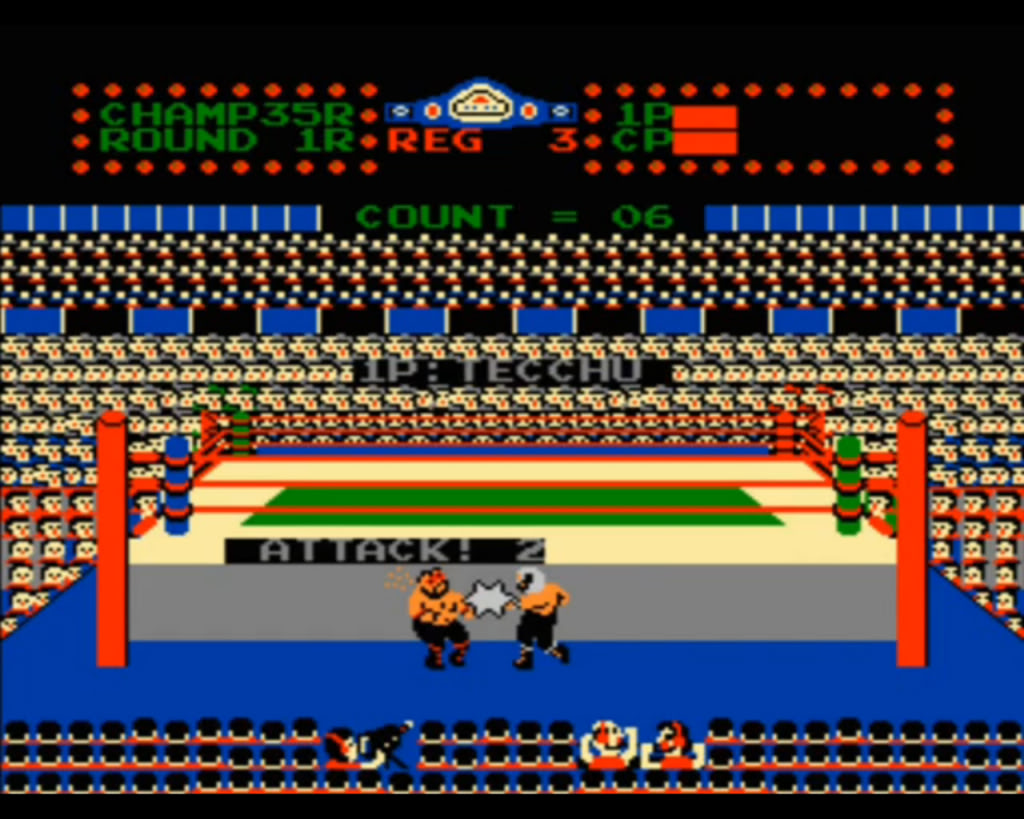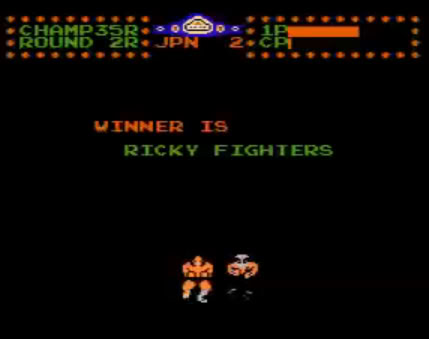
That’s why the first edition of Kusoge Sunday features the NES port of Tag Team Wrestling, one of the most iconoclastic wrestling games you’re likely to play, and also a fine specimen of kusoge. The game began life in Japanese arcades under the title The Big Pro Wrestling! (developed by Technos Japan) in 1983, and was ported to numerous other platforms over the next few years. Sakata SAS ported it to the Famicom in 1986, and Data East brought that version to the NES, about a year ahead of Nintendo’s landmark entry in the genre, Pro Wrestling.
 Pro Wrestling defined a lot of the control conventions that console wrestling games have followed ever since, and part of what makes Tag Team Wrestling worthwhile is the crazy way in which it flouts those conventions. Rather than initiating moves from a grapple, you start by trying to land a punch on your opponent. If successful, you're presented with a menu of the moves your character can execute, and three seconds to scroll through it and select one. This less-than-ideal solution is made even worse by a poor localization. In the U.S. version, many move names were rendered as unintuitive abbreviations, and some weren’t translated at all. It’s barely possible to scroll to the end of the list in three seconds, let alone make sense of choices like “B BRIK” and “TECCHU”.
Pro Wrestling defined a lot of the control conventions that console wrestling games have followed ever since, and part of what makes Tag Team Wrestling worthwhile is the crazy way in which it flouts those conventions. Rather than initiating moves from a grapple, you start by trying to land a punch on your opponent. If successful, you're presented with a menu of the moves your character can execute, and three seconds to scroll through it and select one. This less-than-ideal solution is made even worse by a poor localization. In the U.S. version, many move names were rendered as unintuitive abbreviations, and some weren’t translated at all. It’s barely possible to scroll to the end of the list in three seconds, let alone make sense of choices like “B BRIK” and “TECCHU”.
The upside of this cumbersome mechanic is that the game has a pretty big moveset compared to previous wrestling games. The downside is that animating all those moves for a large cast of characters would have required a lot of sprites, which in turn would have required a lot of memory. As a result, there are only two teams in Tag Team Wrestling. You play the entire game as the babyface team, The Ricky Fighters. The only opponents you ever face are the heel team, The Strong Bads. Every few matches, the sprites at least get palette swapped, but that does little to distract you from the fact that you’re essentially wrestling the same match over and over.
 While you can get the hang of navigating the move menu with enough practice, you’ll never be able to counter the game’s other unique mechanic. Remember how Hulk Hogan used to delight audiences by appearing to become invulnerable while making a spectacular comeback? That happens in Tag Team Wrestling, as well, only it’s The Strong Bads who do it. Supposedly, this is a consequence of avoiding contact with them for too long, but it never really works that way. More often than not, whichever member of The Strong Bads is in the ring just becomes invincible (represented by the sprite turning bright red) any time you get too big of an advantage. It’s cheap and frustrating, and was probably implemented when it became clear that winning every match would have been way too easy otherwise.
While you can get the hang of navigating the move menu with enough practice, you’ll never be able to counter the game’s other unique mechanic. Remember how Hulk Hogan used to delight audiences by appearing to become invulnerable while making a spectacular comeback? That happens in Tag Team Wrestling, as well, only it’s The Strong Bads who do it. Supposedly, this is a consequence of avoiding contact with them for too long, but it never really works that way. More often than not, whichever member of The Strong Bads is in the ring just becomes invincible (represented by the sprite turning bright red) any time you get too big of an advantage. It’s cheap and frustrating, and was probably implemented when it became clear that winning every match would have been way too easy otherwise.
It’s hard to judge Tag Team Wrestling too harshly, though. Even though its new ideas were quickly consigned to the wastebasket of wrestling game history, it at least had new ideas. That’s more than you can say for the vast majority of later games in its genre, which even today follow the basic roadmap drawn by Pro Wrestling. Tag Team Wrestling tried to re-invent the wheel and failed, but sometimes that’s more admirable than making a perfectly competent wheel the same way everyone else does.




